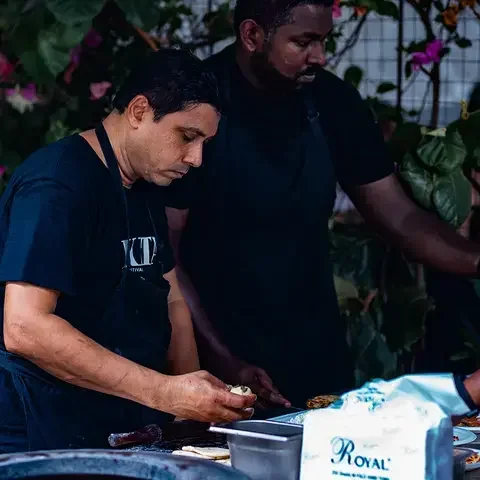On his 18th birthday, Oli Williamson had a gastronomic day out to rival any. He started with lunch at Gordon Ramsay’s flagship three-Michelin-star restaurant on Hospital Road in London. Then, while still digesting it, he hopped on over to Bray, the quaint Berkshire village to the west of the capital for dinner at Heston Blumenthal’s The Fat Duck. Williamson describes that day, somewhat understatedly, as “a bit of blowout”.
Now 31, Williamson finds himself back at The Fat Duck as head chef, working alongside executive head chef Edward Cooke, having started there as pastry sous at the end of 2020. “Sometimes I have to pinch myself,” says Williamson. “I remember the experience [of eating at The Fat Duck] well. Eating the egg and bacon ice cream they make at the table with liquid nitrogen, being like, ‘I’ve no idea how to do that’.”
Now he has the keys to the cookbook. Williamson came to Bray via The Clove Club in London, where he was head chef, and has stints at Midsummer House in Cambridge, and Benu in San Francisco on his CV. As the latest recipient of the Roux Scholarship, he will be moonlighting as a stagiaire at another three-star, most likely in Asia, very soon.













